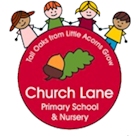SMSC and protected characteristics
SMSC
SMSC stands for Spiritual, Moral, Social and Cultural development.
In school we aim to provide many opportunities for pupils to develop in all these areas and often there is much overlap between the four areas.
Spiritual development is the development of the non-material element of a human being which animates and sustains us and, depending on our point of view, either ends or continues in some form when we die. It is about the development of a sense of identity, self-worth, personal insight, meaning and purpose. It is about the development of a pupil’s ‘spirit’. Some people may call it the development of a pupil’s ‘soul’; others as the development of ‘personality’ or ‘character’.
Moral development is about the building, by pupils, of a framework of moral values which regulates their personal behaviour. It is also about the development of pupils’ understanding of society’s shared and agreed values. It is about understanding that there are issues where there is disagreement and it is also about understanding that society’s values change. Moral development is about gaining an understanding of the range of views and the reasons for the range. It is also about developing an opinion about the different views.
Social development is about young people working effectively with each other and participating successfully in the community as a whole. It is about the development of the skills and personal qualities necessary for living and working together. It is about functioning effectively in a multi-racial, multicultural society. It involves growth in knowledge and understanding of society in all its aspects. This includes understanding people as well as understanding society’s institutions, structures and characteristics, economic and political principles and organisations, roles and responsibilities and life as a citizen, parent or worker in a community. It also involves the development of the interpersonal skills necessary for successful relationships.
Cultural development is about pupils’ understanding their own culture and other cultures in their town, region and in the country as a whole. It is about understanding cultures represented in Europe and elsewhere in the world. It is about understanding and feeling comfortable in a variety of cultures and being able to operate in the emerging world culture of shared experiences provided by television, travel and the internet. It is about understanding that cultures are always changing and coping with change. Promoting pupils’ cultural development is intimately linked with schools’ attempts to value cultural diversity and prevent racism.
Protected Characteristics
Our curriculum is the backbone of our children’s personal development. At Church Lane, we actively promote protected characteristics in our curriculum and work to embed them into our ethos. Our curriculum encompasses the teaching and learning of protected characteristics to ensure that children are well-informed of these characteristics and the rights of people within these communities in an age-appropriate way. Children are aware of discrimination and, as a result, we all work hard to ensure everyone at Church Lane or in our community is included and accepted. Children at Church Lane are respectful towards all individuals. They recognise the importance of treating people fairly and respecting everyone’s rights.
In addition to our formal curriculum, our wider curriculum provides planned opportunities to support children’s knowledge and understanding of the protected characteristics. This is covered through:
– Celebration of religious festivals and events
– our History Curriculum including Black History Month.
– British Values Week
– trips and Visits
– high-quality resources and displays
Our robust assembly offer provides more opportunities for children to learn more about these protected characteristics as well as how to keep themselves and others safe.
Our Assembly Intent: For children to…
…Become responsible, respectful and active citizens
…know the difference between right and wrong
…know the consequences of their behaviour and actions
…have the knowledge and respect for different faiths, feelings and values
…enhance pupils’ spiritual, moral, social and cultural development
…create an environment where children feel safe and where bullying, harassment, discrimination etc is not tolerated
…know how to keep themselves safe including online
…understand protected characteristics, promoting equality and diversity
…be prepared for their adult lives
…support children with how to engage in society




